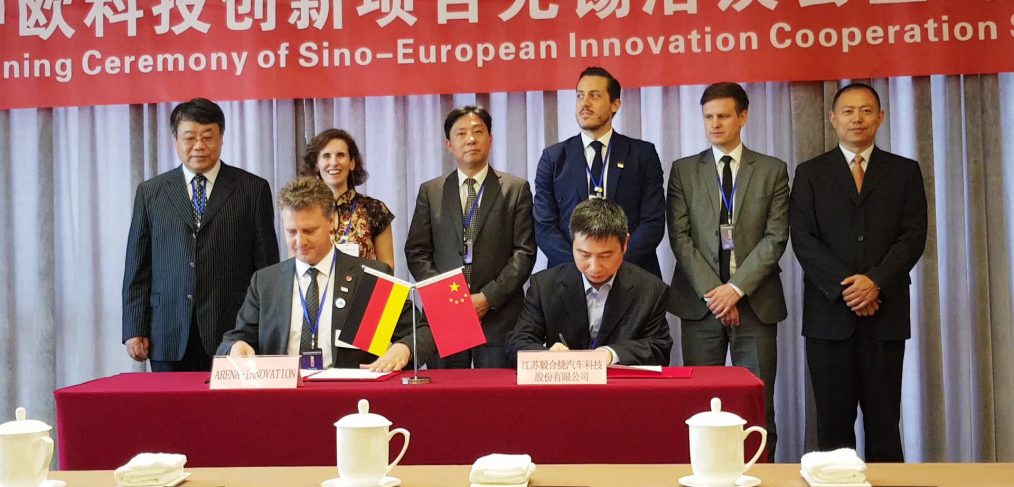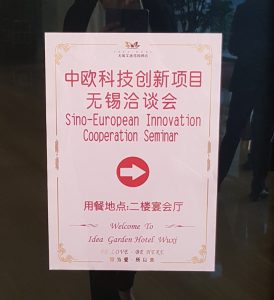
„China, Reloaded“ Part 2: “This state is run like a company!“
A contribution by Katja Nettesheim, _MEDIATE founder & managing director
„Ganbei“…
… means „dry glass“, and is a traditional invitation to drink. And anyone who knows me knows that I can hardly resist such an invitation, just like at a dinner in the north of Shanghai. On Wednesday, we visited a couple of local research centers and “innovative” companies in a rather large and up-and-coming district north of Shanghai. In the evening, we were invited for dinner by the district mayor. Already during the day, somehow, things seemed a bit bizarre, not the least because our local organizer was very tense, hurried us a lot to be on time, planned seating orders, wrote place cards, gave out a dress code (taking it back immediately with the comment: “But hey, you’re German, it doesn’t matter” – ??)

At dinner (see above),
I sat next to Yao, the chairman of the local “Association for Science & Technology”. He already had – with great passion – escorted our tour throughout the day. Overall, I noticed how politicians all the time took an intense interest in how our delegation was received and how it progressed on business matters. They strongly insisted on pictures being taken, showing the local companies’ representatives and our delegation. Above that, they made sure there was an MoU signing ceremony – even with pre-drafted MoUs!! – for those in our delegation that had more detailed talks (i.e., more than 20 minutes) with a local company. I found that unusual, as in Germany, politicians are in most cases rather lagging a bit behind the companies …. In China, the other way around.
Later in the evening, as the tongues were loosened by repeated rice schnapps drinking “on ex” (from the carafe!!), I dared to innocuously ask what the reason for this strong engagement was. Upon my question, I got the following answer, which is since then my key to understanding China:

“You know Katja, you have to understand one thing: This country is run like a company. The state makes plans, long-term plans. They are broken down to regional areas and also to companies. The state is the party and the party is in the companies. Therefore, public officials and CEOs are subject to the same system of targets and incentives. In case of the public official, if he has hit his GDP goal, he gets ‘re-elected’ or even promoted.”
From this moment, it was all clear to me: Reaching the GDP goals attributable to the respective region is the holy grail for the politicians’ personal career. Therefore, it requires the utmost effort in attracting foreign companies, including making sure that their delegation has very little to no time to visit the adjacent district J Mayors therefore totally behaved like BU leads. And – drawing more on this analogy – since the conclusion of agreements with foreign companies is not a short-term goal, probably the number of pictures taken with foreign delegations and the number of MoUs signed are sub-KPIs to be reported on quarterly …..
And indeed – when researching for this blogpost, I found the following very interesting table, spelling out the performance management guidelines of the community of Foshan, an important commercial and trade center with over 7 million inhabitants in the Pearl River Delta, next to Shenzhen and Guangzhou.

Cited after Gordon Orr, https://www.linkedin.com/pulse/how-some-chinese-government-officials-get-evaluated-gordon-orr/
I particularly like item No. 23, the Peaceful Foshan Index (4%) – and that I don’t have to carry out the respective talks, no matter what side I’d be on!
Subscribe to our Newsletter and don’t miss any news on „China Reloaded“!

One comment